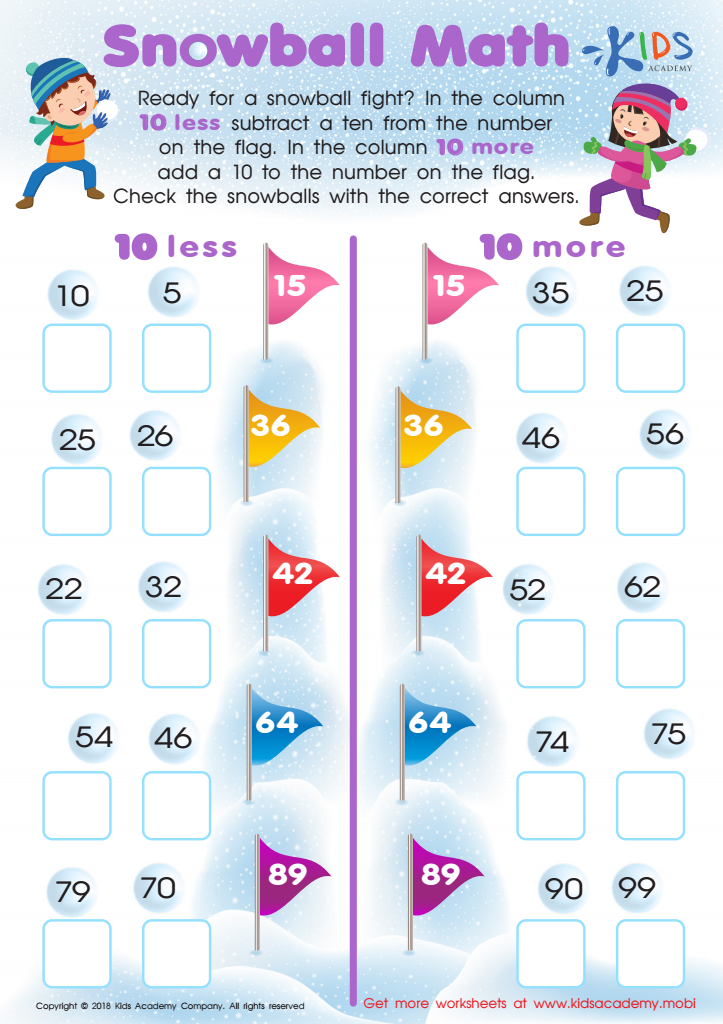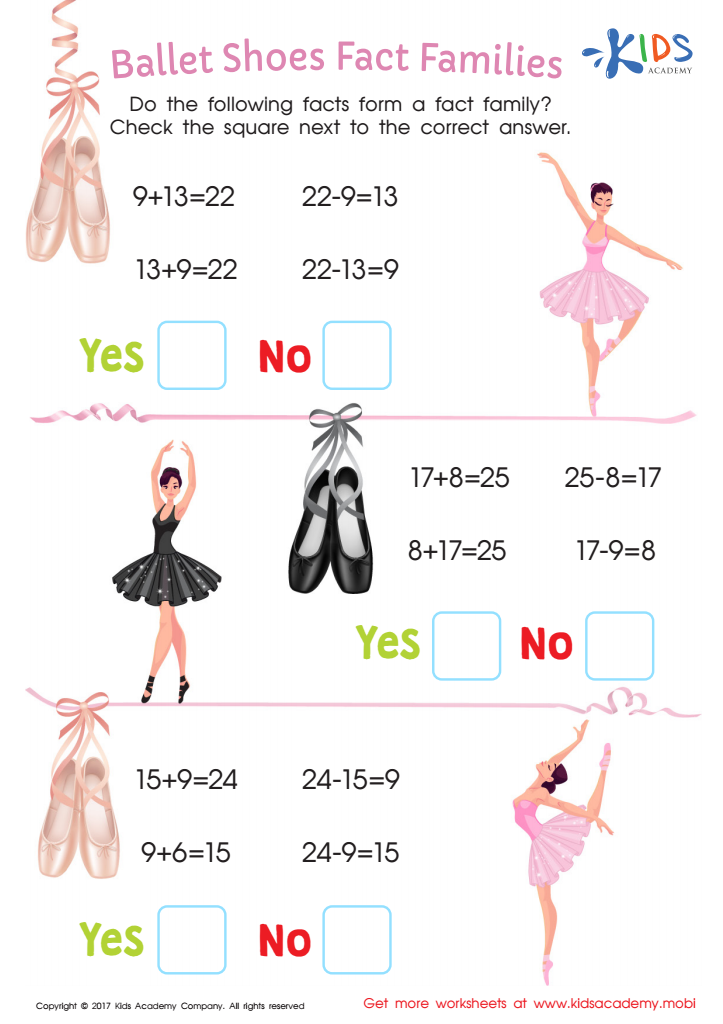Improving mental math Addition & Subtraction Worksheets for Ages 6-7
3 filtered results
-
From - To
Enhance your child's mental math skills with our engaging Addition and Subtraction Worksheets designed specifically for ages 6-7! These worksheets encourage young learners to develop quick and accurate calculations without relying on calculators or external aids. With a variety of fun and interactive exercises, your child will practice essential strategies for improving their mental math proficiency. Each worksheet is crafted to boost confidence, enhance problem-solving skills, and promote a solid understanding of mathematical concepts. Perfect for home and classroom use, these resources will lay a strong foundation for future math success! Help your child excel in math with our specially designed worksheets today!


Snowball Math Worksheet


Ballet Shoes Fact Family Printable
Improving mental math skills in addition and subtraction for children aged 6 to 7 is crucial for their overall mathematical development and confidence. At this age, children are transitioning from concrete operational learning to more abstract thinking. Mental math skills lay the foundation for their future math experiences.
Firstly, strong mental math abilities enhance problem-solving skills. When children can quickly and accurately perform basic calculations in their heads, they are more likely to tackle complex problems with confidence. This fosters a positive attitude toward math, reducing anxiety and building resilience.
Moreover, mental math promotes cognitive flexibility, as it encourages children to find various strategies for solving problems. This adaptability is essential not only in math but also in everyday situations requiring critical thinking and decision-making.
Finally, strengthening these fundamentals assists in building a strong number sense, enabling children to understand relationships between numbers, recognize patterns, and develop mathematical reasoning. This foundational understanding will support their engagement in more advanced topics in the future.
In essence, prioritizing mental math in early education benefits cognitive development, instills a love for learning, and equips children with essential skills that will serve them well throughout their academic journey and everyday life.

 Assign to My Students
Assign to My Students

















